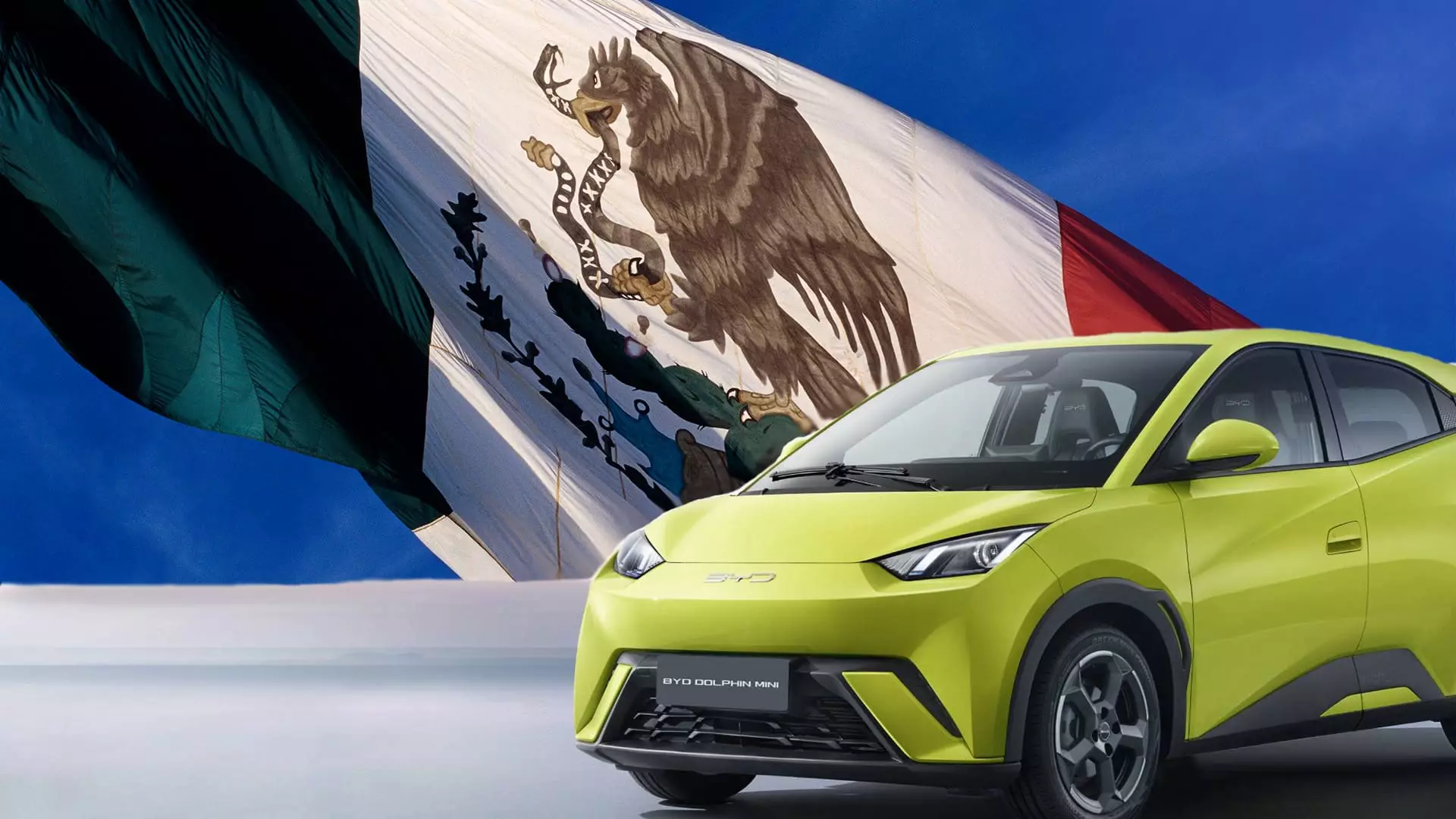Chinese electric vehicle (EV) manufacturers are facing significant challenges in the United States due to high tariffs aimed at protecting domestic producers. As a result, these companies are forced to reassess their market strategies. Rather than pulling back, they have increasingly set their sights on Mexico, which has rapidly transformed into a central hub for the export of Chinese EVs. This strategic pivot raises concerns among U.S. officials, who fear that this could be a loophole allowing Chinese automakers to access the lucrative U.S. market indirectly.
In 2022, data from the Mexican Ministry of Economy revealed that Chinese automotive exports to Mexico surged, making China the leading car supplier to the country with exports valued at approximately $4.6 billion. The competitive pricing of these electric vehicles has attracted a wide array of customers, even those traditionally hesitant about EV technology. For example, BYD’s Dolphin Mini is priced at around $21,300, considerably more affordable than the cheapest Tesla, which showcases the appealing price point of Chinese offerings.
The aggressive entry of Chinese automakers into the Mexican market has surprised many industry observers. Former Mexican Deputy Minister for International Trade, Juan Carlos Baker, noted that these companies not only offer enticing promotions but also present products that appeal to consumers with their reasonable pricing. The combination of effective marketing and cost competitiveness has made the prospect of Chinese EVs quite enticing in Mexico.
Furthermore, manufacturers such as BYD are eyeing long-term investments in Mexico through the establishment of manufacturing plants in regions like Durango, Jalisco, and Nuevo Leon. Not only would this create thousands of jobs—BYD estimates approximately 10,000 positions—but it would also signal a deeper integration of the Chinese automotive industry within North America. This willingness to invest elucidates China’s commitment to strengthen its foothold in the region, which raises further alarm for U.S. businesses and lawmakers.
Concerns surrounding Chinese investment in Mexico cannot be understated, especially in light of the United States-Mexico-Canada Agreement (USMCA). This agreement eliminated tariffs on numerous goods traded between the three nations since 2018, allowing foreign automakers the opportunity to export vehicles to the U.S. without incurring heavy duties, provided they meet specific local sourcing criteria. Scott Paul, president of the Alliance for American Manufacturing, indicated that this trade environment is appealing not only for Chinese businesses but for others aiming to capitalize on tariff-free access to the U.S.
U.S. officials worry that this arrangement could lead to a situation where Chinese EV manufacturers exploit these loopholes to circumvent tariffs, a scenario likened by experts to playing “whack-a-mole.” The fears are exacerbated by the fact that Chinese manufacturers have successfully implemented similar strategies in various sectors, from household appliances to steel. Their success is not just theoretical; several American lawmakers and industry experts believe that if Chinese automakers establish a strong presence in Mexico, they could become formidable competitors for American manufacturers, particularly given their competitive pricing advantages.
The current trajectory of U.S. trade policy, exemplified by President Joe Biden’s announcement of a 100% tariff on Chinese EVs, reflects a defensive approach. The U.S. electric vehicle industry, still in its growth phase, is often described as an “infant industry.” Just like any developing sector, it requires robust protection against established foreign competitors that may leverage lower production costs to gain market share. Paul’s characterization of the situation underscores the delicate nature of the U.S. EV industry, which is striving to scale up its operations in an increasingly competitive global market.
Simultaneously, the delicate balancing act that Mexico must perform becomes evident. Despite the economic benefits associated with attracting Chinese investments, Mexico’s relationship with the U.S. is crucial. Overly accommodating policies towards Chinese manufacturers may upset the strategic partnership that has developed through decades of trade agreements. Thus, Mexico finds itself in a precarious position: it must navigate domestic economic interests while also maintaining a harmonious and beneficial relationship with its northern neighbor.
The growing presence of Chinese electric vehicles in Mexico represents a complex intersection of economics, politics, and international relations, one that could reshape the landscape of automotive manufacturing in North America. As this situation unfolds, stakeholders on all sides must closely monitor these developments and prepare for the potential ramifications.


Leave a Reply